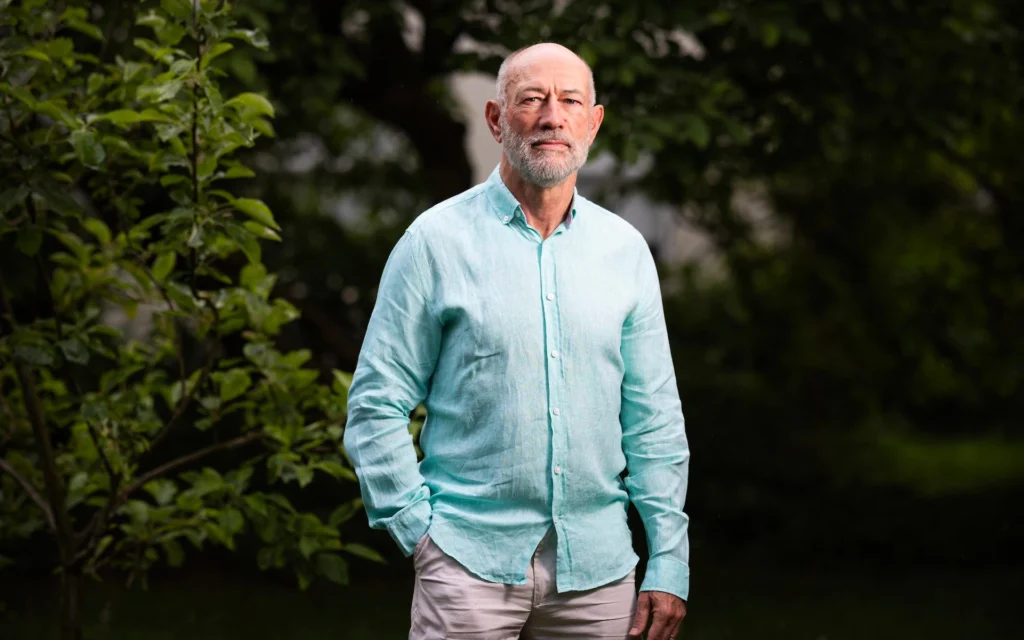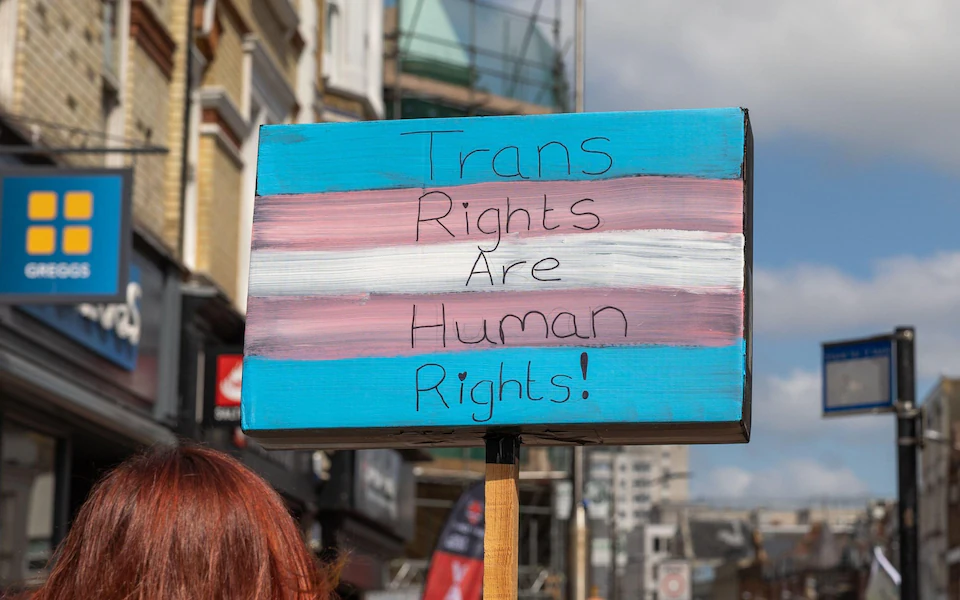As a human rights lawyer, I never questioned the trans movement. But, after a lightbulb moment, I publicly changed my position

I am a human rights lawyer and professor at King’s College London. Until 2018, I supported all the demands of the transgender-rights movement. But since then, I have changed my mind.
Why? Because I finally understood that some demands conflict with the rights of women and are therefore unreasonable.
I first encountered transgender rights as a University of Oxford PhD student, researching the human rights of lesbian, gay and bisexual individuals and same-sex couples. The claims of transsexual persons, as they were then known, seemed different to me. I did not understand them, so I was reluctant to comment on them.
And when, in the 2002 Christine Goodwin case (Goodwin said that she had faced sexual harassment at work following gender-affirming surgery), the European Court of Human Rights ruled that the UK must amend the sex on the birth certificates of “post-operative transsexuals” to reflect their “new sexual identity”, I thought that this must be progress. At last, the UK would have to catch up with other European countries.
Two years later, when the Gender Recognition Act of 2004 went well beyond that ruling, by not requiring any surgery or other medical treatment (a person with a beard and male genitals could become legally female), it struck me as very generous but I did not question it.
I assumed that whatever the transgender community demanded must be reasonable.
They knew what they needed. It did not occur to me, as a man, to put myself in the shoes of a woman, encountering a “legal woman” with male genitals in a women-only space.
As such, when I joined a group of experts in Indonesia to draft the 2007 Yogyakarta Principles, widely cited as “best practice” on sexual orientation and gender identity, I did not question the proposals of the transgender experts.

Everything changed in 2018. My lightbulb moment came at a university summer school. I was asked to explain the “spousal veto” under UK law: a wife must consent, if her husband wishes to change his legal sex to female and in turn make their opposite-sex marriage into a same-sex marriage. I said that the husband’s human right to change his legal sex could be limited to respect “the rights of others” (the wife’s right not to be in a same-sex marriage against her will).
A transgender student could not understand how I could compare the husband’s “fundamental human right” with the wife’s right under “a contract” (their marriage). Feeling frustrated, I said: “Trans rights don’t trump everything else!”
The transgender student became angry and stormed out of the classroom. Finally, it dawned on me that some members of the transgender-rights movement did not seem to understand that women have human rights too.
Over the next two years, I began to speak with women about their concerns about some transgender demands.
One woman asked if I had read Principle 31 of the 2017 Yogyakarta Principles (in which I did not participate). I had not done so and was shocked when I read it.
It boldly claimed that every country in the world must remove sex from birth certificates and, until then, allow change of legal sex based on self-identification (without a diagnosis of gender dysphoria).
In 2021, I publicly changed my position. On April 1 of that year, in an interview published in The Critic, I criticised Principle 31 and suggested for the first time that allowing change of legal sex might not be necessary to protect the rights of transgender people.
Fifteen days later, citing the interview, an LGBT organisation terminated its relationship with me, after more than twenty years.
To an LGBT-rights activist I had known for just as long, I wrote: “I hope that we can still be friends!” He replied that he wanted “to take a break for a bit” (now four years and counting).
A month later, I became a trustee of the charity LGB Alliance (founded in 2019 after Stonewall began to prioritise transgender issues) and went on to speak at its first annual conference.
In that speech, I focused on the legal changes I had witnessed since 2002 and linked the political tensions surrounding transgender rights to an “abuse of sympathy”, which had in turn led to an “escalation of demands”.
I charted how we had shifted from change of legal sex after surgery, to change of legal sex without medical treatment but with safeguards (a diagnosis of gender dysphoria and a two-year waiting period), to change of legal sex based on self-identification (with no safeguards) and finally to removing sex from birth certificates (meaning that there is no legal sex to change).
These were ideas I carried forwards to a staff research seminar at King’s in November of 2021 – albeit not without controversy. The Dean of the School of Law rejected calls to cancel the event and showed his support for freedom of expression by attending. Three security guards were posted outside the room (a first in my thirty years at the university), but no protesters appeared.
Two years later, in January 2023, I was scheduled to give the same talk at Montréal’s McGill University Faculty of Law (where I had studied).
But this time I faced a hostile mob of between 100-200 students.
They chanted “shame on you” and “F**k your system. F**k your hate. Trans rights aren’t up for debate”. At one point, I thought that they were going to smash the glass door to the seminar room. Instead, they forced it open, stopped me from speaking, and threw flour on me.
All of which has informed my book, Transgender Rights vs Women’s Rights, in which I reach conclusions that will shock many supporters of the transgender-rights movement.
In writing it, I realised that I had been wrong to assume, for many years, that anything the movement proposed must be reasonable. The escalation of demands I belatedly noticed made me go back to the start and ask myself: was change of legal sex ever justifiable? I concluded that it was not, and that Sweden made a mistake in 1972 when it became the first country in Europe to allow the practice. That mistake has of course been replicated by many other European nations since.
Countries that have yet to follow suit (nearly 60 per cent of the 193 United Nations member states) are right to hold out.
There is no human right to documents that are biologically false. An individual’s birth sex never changes, regardless of any medical treatment they receive.
But transgender people had in 1972, and have today, a human right to legal protection against all forms of violence, harassment or discrimination.
That was the judgment Sweden should have reached in 1972, and everyone else since.
Taking a stand has not been without cost. Since I “came out” as “gender-critical” four years ago, a number of friends have stopped speaking to me, and this year I was dropped from a university’s summer programme.
But I am proud to have made this journey, and of finally speaking out for the rights of women.
Robert Wintemute is Professor of Human Rights Law at King’s College London and the author of Transgender Rights vs Women’s Rights: From Conflicts to Co-existence, published by Polity Books on May 30
Source: The Telegraph
https://www.telegraph.co.uk/news/2025/05/27/i-lost-friends-when-i-changed-my-mind-on-trans-rights
